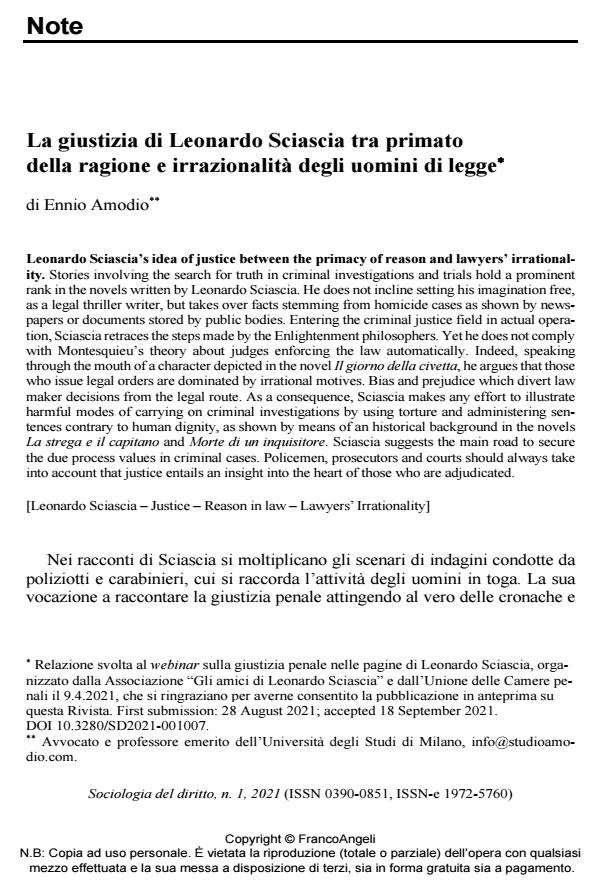Leonardo Sciascia’s idea of justice between the primacy of reason and lawyers’ irrationality.
Journal title SOCIOLOGIA DEL DIRITTO
Author/s Ennio Amodio
Publishing Year 2021 Issue 2021/1
Language Italian Pages 8 P. 163-170 File size 241 KB
DOI 10.3280/SD2021-001007
DOI is like a bar code for intellectual property: to have more infomation
click here
Below, you can see the article first page
If you want to buy this article in PDF format, you can do it, following the instructions to buy download credits

FrancoAngeli is member of Publishers International Linking Association, Inc (PILA), a not-for-profit association which run the CrossRef service enabling links to and from online scholarly content.
Stories involving the search for truth in criminal investigations and trials hold a prominent rank in the novels written by Leonardo Sciascia. He does not incline setting his imagination free, as a legal thriller writer, but takes over facts stemming from homicide cases as shown by newspapers or documents stored by public bodies. Entering the criminal justice field in actual operation, Sciascia retraces the steps made by the Enlightenment philosophers. Yet he does not comply with Montesquieu’s theory about judges enforcing the law automatically. Indeed, speaking through the mouth of a character depicted in the novel Il giorno della civetta, he ar-gues that those who issue legal orders are dominated by irrational motives. Bias and prejudice which divert law maker decisions from the legal route. As a consequence, Sciascia makes any effort to illustrate harmful modes of carrying on criminal investigations by using torture and administering sentences contrary to human dignity, as shown by means of an historical back-ground in the novels La strega e il capitano and Morte di un inquisitore. Sciascia suggests the main road to secure the due process values in criminal cases. Policemen, prosecutors and courts should always take into account that justice entails an insight into the heart of those who are adjudicated.
Keywords: Leonardo Sciascia - Justice - Reason in law - Lawyers’ Irrationality
Ennio Amodio, La giustizia di Leonardo Sciascia tra primato della ragione e irrazionalità degli uomini di legge in "SOCIOLOGIA DEL DIRITTO " 1/2021, pp 163-170, DOI: 10.3280/SD2021-001007